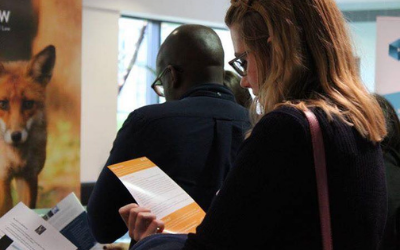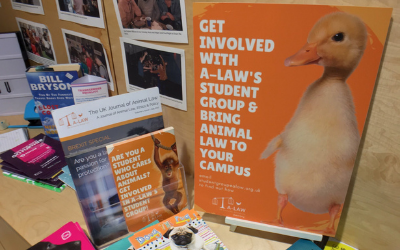By Debbie Lee, legal secretary and solicitor-in-training
The next edition of the Journal of Animal Law will highlight a potentially ground-breaking case in the field of animal rights law.
This recent case considered the legal rights of animals kept in captivity in the Marghazar Zoo in Islamabad. Petitioners claimed that the animals in the Zoo were confined to poor living conditions and that their full needs were not being met. The animals notably included an elephant named Kaavan, who had been on his own since the death of his companion in 2012. Concerns about his diet, the opportunity for exercise, the size of his enclosure, and more led up to the case. Other animals in the petition (though outside the Zoo) included stray dogs, who were allegedly killed in an inhumane manner.
The Court considered the following questions:
· Do the animals in the Zoo have legal rights?
· Does the Constitution impose any duty on the State or humans to ensure the welfare, conservation, and protection of animals?
· Should the Zoo continue to allow pain and suffering of the animals? (NB the Court gave the parties reasonable time to improve the living conditions and well-being of the animals, yet no adequate improvements were made.)
The Islamabad High Court looked at several jurisdictions to examine how other courts view the rights of animals, and ultimately concluded that animals do have legal rights. The court stated:
The human rights are inherent because they stem from the attribute of being ‘alive’. Life, therefore, is the premise of the existence of a right. Whether human rights or rights guaranteed expressly under the Constitution, they all have a nexus with ‘life’. An object or thing without ‘life’ has no right. A living being on the other hand has rights because of the gift of ‘life’. An animal undoubtedly is a sentient being. It has emotions and can feel pain or joy….It is unnatural for a lion to be kept in captivity in a restricted area. To separate an elephant from the herd and keep it in isolation is not what has been contemplated by nature. Like humans, animals also have natural rights which ought to be recognized.
The Islamabad High Court declared that the Prevention of Cruelty to Animals Act 1890 and the Wildlife Ordinance Act 1979 gave the authorities the responsibility to ensure that no animal is subjected to any ill treatment or suffering. Any violation of this would go against the ‘right to life’ under Article 9 of the Constitution.
The Zoo had kept animals in poor conditions, leading to their suffering. They had failed to meet the animals’ needs. As a result, it was intended that Kaavan would be relocated to an elephant sanctuary and all the other animals in the zoo moved to appropriate sanctuaries (despite the petition only being about a small number of animals).
The High Court’s decision brought welcome news to animal advocates worldwide for the prospect of a better future for Kaavan and other animals. Tragically, however, it has been reported that during the attempt to move the animals, a number of them lost their lives. An investigation into this is underway, potentially leading to prosecutions.
Read more about the ramifications of the transfer and loss of lives here https://www.pakistantoday.com.pk/2020/08/03/ihc-takes-officials-to-task-over-animal-deaths-at-islamabad-zoo/
Sources
Decision: https://www.nonhumanrights.org/content/uploads/Islamabad-High-Court-decision-in-Kaavan-case.pdf
The Constitution of the Islamic Republic of Pakistan 1973
https://www.livescience.com/4272-elephant-awareness-mirrors-humans.html
Black’s Law Dictionary (Sixth Edition)
National Society for the Prevention of Cruelty to Animals v Minister of Justice and Constitutional Development and another [2016] ZACC 46
N. R. Nair and others etc, v. Union of India and others [AIR 2000 Kerala 340]







